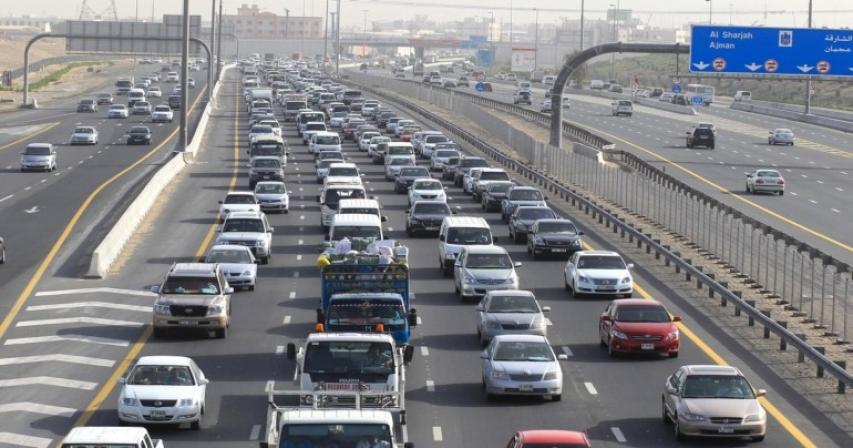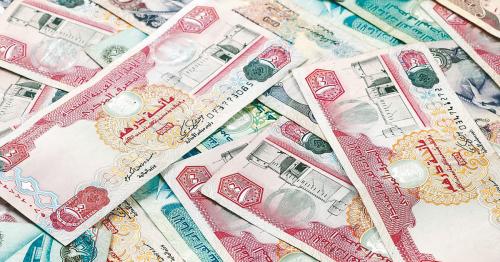Dubai motorists lost up to 35 hours to traffic congestion in 2024

Dubai drivers sank 35 hours in traffic delays in 2024 – 2 hours more than the year before – as the population and vehicle number in the city increased, Inrix 2024 Global Traffic Scorecard reported. We have hours spent in traffic, much more than we did in 2022 (up 45 per cent).
The population of the emirate has grown by more than 134,000 since the beginning of this year, and is now at 3.8 million. In January 2021, more than 378,000 people moved into the city as the numbers skyrocketed due to a flood of foreign professionals, workers and investors after the post-pandemic boom of the economy.
For instance, registered vehicles in Dubai rose 8.7 per cent on a year-on-year basis to 4.3 million, thanks to the city’s macroeconomic development, according to the data from the toll gate operator Salik.
Daytime vehicle circulation in Dubai is at 3.5 million vehicles, official data from the Roads and Transport Authority (RTA) showed in November last year. The number of registered cars in the emirate has increased by 10 per cent in the last two years, as compared with 2-4 per cent globally.
But the Dubai government is still scurrying to build the infrastructure to make traffic flow more smoothly around the city, squirting billions of dirhams into the system to keep up with increasing demands for housing and roads.
Dubai’s plan for internal roads (2025-2029) for 21 projects over 12 residential, commercial and industrial zones (dh3.7 billion) is approved for five years (2024-2024). It is a project that coincides with the emirate’s population expansion and urbanisation.
Taking note of the necessity of modern infrastructure, the emirate built roads and other infrastructure in the face of the financial crisis.
"Dubai’s infrastructure is one of the prime drivers as the emirate was still working on it even through the financial crisis and pandemic in 2008-09," said Fawaz Sous, CEO of Octa Properties Said.
"Dubai has always built infrastructure despite the low price because that’s just smart. And that’s not only roads and bridges infrastructure but also legal infrastructure which is very transparent", he continued.
Dubai also opens more flexible working hours and work from home policy to reduce traffic congestion. These measures, according to the authorities, can cut the morning peak travel time in the emirate by 30 per cent, according to two studies conducted by the agency.
Around the world, the emirate came 154th for congestion (the better than most cities).
With more traffic, the speed is now 35 miles per hour in 2019 — dropping to 33 in 2023 and 32 in 2024 at rush hours and morning and afternoon. The speed rose to 45 miles per hour during off-hours in 2024.
Yet the last mile speed into downtown was 22 mph in the morning.
The UAE picture
On average, UAE motorists lost 8 to 35 hours while Abu Dhabi and Umm Al Quwain each absorbed 19 to 14 hours respectively. Abu Dhabi and Umm Al Quwain also spent 5 and 7 per cent less time in traffic in 2024 compared with last year. Drivers in Al Ain and Fujairah were waiting 9 hours vs 8 hours in 2024. Ajman, Sharjah and Ras Al Khaimah didn’t get in the most recent report by Inrix.
Peak and off-peak speeds in the UAE capital in 2024 were 38 miles per hour during the morning and afternoon, as last year.
Global situation
Istanbul, New York, Chicago, Mexico City and London are the five most crowded cities in the global congestion Impact Ranking 2024, with 105,102,102,97 and 101 hours of traffic congestion lost in 2024.
The average US motorist lost 43 hours to traffic jams, or a full work week, or $771 in time. Drivers in the UK lost an average of 61 hours on their way to work (£581 in lost time), while in Germany drivers lost on average 43 hours in traffic jams (€470 per driver).
Congestion cost the US more than $74 billion in 2024 — up 1.7 per cent from 2023. In contrast, UK drivers were down nearly £7.8 billion, or 11 per cent.






Comments